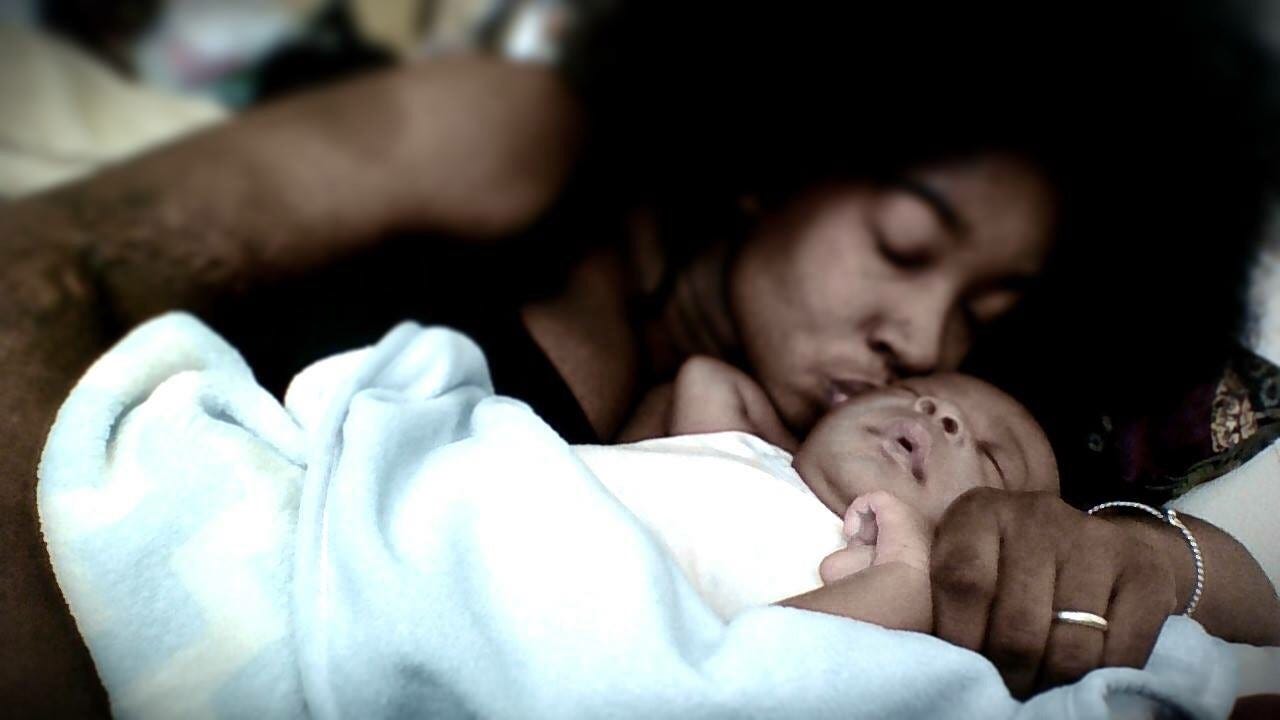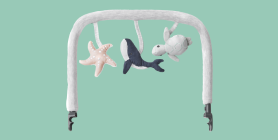
In the United States, the speed with which a mother recovers from birth and “gets her body back” is measured in weeks, not months. Magazines flaunt celebrities who lost the baby weight in just 2 weeks, dashed back to work after a mere month, while effortlessly bouncing a baby on their hip. Women are expected to return to work 6 weeks after giving birth, just as if nothing had happened. We are one of the only cultures that does not value the importance of slowing down and asking for support in the postpartum year. I would like to help change that. Here are ten tips for how you can enhance your physical, emotional and mental health in the first year after giving birth – whether this is your first or fifth baby.
Stay in Bed
As long as you can! Take all the help you can get in the first year after your baby/babies are born, and don’t feel guilty about it. A midwife I know has this rule of thumb: 1st week – in the bed, 2nd week -‐ around the bed, 3rd week around the house, 4th week around the block. Then it’s baby steps from that point on. Resist the urge to “bounce right back.” Take naps.
Meditate
Meditation doubles oxygen to the brain and will give you sanity when you feel crazy. Find a class, a book, or just sit and focus on your breath. There are as many methods of meditation as there are parenting styles. Pick one that works for you. A wonderful introduction to meditation for mothers is “The Intuitive Mother” by Dr. Niki Elliott.
Get Acupuncture
Acupuncture is a painless, drug-free way to help mothers recover from childbirth. Acupuncture regulates hormonal fluctuations, treats pain, insomnia, anxiety, stress, helps with lactation problems...and makes you feel like you had a 3 hour nap. Click here to find an acupuncturist in your area and search your zip code. Make sure your acupuncturist specializes in the childbearing cycle.
Ask for Help
Involving your partner, family and friends in your journey into new motherhood is an essential part of holistic self-care. It’s hard to admit we need help, but all new parents do. With a new baby at home, finding time to take care of yourself becomes challenging. Most of us put ourselves at the bottom of the priority list. Perhaps you could ask a friend to watch your kids while you do something loving for yourself, and then return the favor when you feel ready.
Talk it Out
Sharing your feelings during this emotional time of transition is crucial. According to Traditional Chinese Medicine, the emotions reside in the blood; when we are blood-deficient, after giving birth, we are more prone to big waves of emotions. Giving voice to big feelings prevents them from getting lodged in the blood and leading to pathology. Some moms seek peer support through a local Mom’s group or an online forum, others are more comfortable talking to a therapist, and some find solace in a spiritual counselor or place of worship. There is no right answer. Do know that whatever you’re feeling, there’s another mom who has had it too and can give you empathy.
Eat Real Food
Including slow-cooked stews, meat on the bone, COOKED dark leafy greens, rice and beans, root vegetables, fresh fruit, seaweed, good fats such as avocado and coconut oil. Focus on nutrient-dense foods. Avoid processed foods and refined sugars. This will help you recover from the loss of Blood and Qi, and will nourish your breast milk if you’re nursing. Consider placenta encapsulation: according to Chinese Medicine, consuming placenta in the weeks postpartum nourishes Qi, Blood, Yin and Yang, and is an excellent way to recover from childbirth and prevent postpartum depression.
Connect with Your Partner
Both with and without the baby. The importance of date nights cannot be overstated.
Exercise
You know that exercise raises serotonin levels, which is great when you’re struggling to feel normal again after the birth of a child. (Lying on the kitchen floor hysterically crying? You’re not alone!) Exercise also moves Qi and Blood, which is essential when you’re spending long hours holding, feeding, bouncing a baby and possibly also tending to older children. Stop holding yourself to your pre-baby standards. Find some type of exercise routine that gets your heart rate up, gets you out of the house, and gives you that awesome serotonin rush.
Trust Your Intuition
If your inner voice is yelling at you loud and clear – about anything – it’s probably right. Don’t over-think a strong intuition: follow it.
Journal It
Journaling is a therapeutic way to cope with the overwhelm of the first year of becoming a parent, or the first year of fitting a new baby into the home that already has other children. Try using Morning Pages, a notebook, or an app – whatever gets you writing something (even just one sentence!) every day. No one but you has to read it, so don’t worry about how your writing voice sounds. You’ll forget so much of the first year; writing about what’s going on in the moment will help you remember the little moments. Photo credit:@iamkatwatkins via Twenty20
Emotional Benefits of Getting Outside
Spending time in nature with your baby can strengthen the bond between you. The simple act of holding your baby close, feeling their warmth, and sharing new experiences together can create strong emotional connections. It’s also a wonderful way to reduce stress and improve your mood. When my littles were extra fussy, I’d take a walk around the neighborhood. Even though I don't live in an area with trails and surrounded by nature, simply behind outside changed everything. A little vitamin D does wonders!
Cognitive Development
Nature is a sensory wonderland for babies. The different sights, sounds, and smells can stimulate your baby’s senses and promote cognitive development. Watching leaves rustle, hearing birds chirp, and feeling the texture of a tree bark can all contribute to their learning and development.
All About Baby Carriers for Nature Adventures
Choosing the Right Baby Carrier
When it comes to selecting the best baby carrier for summer adventures, there are several options to consider.
Types of Baby Carriers:
- Wraps: Perfect for newborns, providing a snug and secure fit.
- Slings: Ideal for quick and easy use, offering good ventilation.
- Soft Structured Carriers: Versatile and comfortable for both parent and baby, suitable for longer trips.
Factors to Consider:
- Baby’s Age and Weight: Ensure the carrier is appropriate for your baby’s size and weight. For example, Ergobaby’s Embrace Newborn Carrier is perfect for the fourth trimester where baby is small and you’re looking for an easy way to stay close. As they grow, you’ll want to upgrade to an all-position carrier that’s meant for growing babies.
- Parent’s Comfort and Ergonomics: Look for carriers with padded shoulder straps and lumbar support if you’re planning on longer outings.
- Ease of Use: Choose a carrier that is easy to put on and take off.
- Climate and Breathability: Opt for carriers made of breathable fabrics to keep you and your baby cool in hot weather.
Safety Tips:
- Proper Positioning: Ensure your baby is seated correctly, with their legs in an "M" position and their head should be close enough to kiss.
- Checking for Wear and Tear: Regularly inspect your carrier for any signs of damage.
- Ensuring Adequate Support: Make sure the carrier provides proper support for your baby’s head and neck.
Exploring Nature with a Baby Carrier
Ideal Spots for a Nature Walk with Baby
- Parks and Gardens: Great for leisurely walks and picnics.
- Nature Trails and Forests: Perfect for more adventurous outings.
- Beaches and Lakesides: Wonderful for enjoying the water and sand, with the right carrier.
Activity Ideas
- Hiking: Enjoy a scenic hike with a hiking baby carrier that offers support and storage.
- Bird Watching: Use your carrier to keep your baby close while you explore and observe wildlife.
- Picnics: A carrier can free up your hands, making it easier to carry picnic supplies.


Advantages of Using Strollers for Nature Adventures


While baby carriers are fantastic for mobility and closeness, depending on the adventure of choice you might want to be a stroller along too.
There are a LOT of baby stroller options on the market. So we understand how confusing it can be to choose the one that’s right for your family. Not only are there a variety of brands, but a variety of strollers that serve different purposes.
There are a few types of strollers on the market:
- Full-sized stroller: This is typically the stroller parents thing of buying for all its versatility.
- Lightweight or umbrella stroller:These compact strollers are perfect for on-the-go adventures.
- Jogging stroller: Designed for parents who want to combine fitness with outdoor adventures.
- Double stroller: Designed for parents with multiple kids, especially twins.
- Car seat carrier: These strollers connect to a specific car seat. We don't typically recommend these as they can be unsafe for baby and uncomfortable for parents who are pushing.
Learn more about the types of strollers and which one would be best for you.
Benefits of Bringing a Stroller
- Storage Space for Gear: Ample room for carrying all your essentials like a diaper bag, beach toys and more.
- Shade and Weather Protection: Built-in canopies to shield your baby from the sun when they are lounging.
- Options: If you have more than one kid, you can stroll with one and carry the other. Or, if you’re getting warm or your little one is getting fussy, you can switch up their position from stroller to carrier or vice versa.
Safety Tips for Strollers
- Ensure your stroller is in good working condition. Make sure buckles are still buckling and that there are no rips or holes that could compromise your baby’s safety.
- Use sunshades or bug nets to protect your little one’s skin.
- Securing the baby properly: always buckle up your baby for safety even if you think they are old enough to go without the buckle.
Combining Baby Carriers and Strollers
For the ultimate flexibility, consider using both a baby carrier and a stroller on your outings.
Combining both options allows you to adapt to different situations. Use the carrier for more rugged trails and switch to the stroller for smoother paths or when your baby needs a nap.
Transition Tips
- Smooth Transitions: Plan stops where you can easily switch from carrier to stroller.
- Pack Light: Only bring essentials to make transitions easier.
Tips for a Successful Adventure
Planning Ahead
- Route Planning: Choose baby-friendly trails and parks. Check local mom groups or outdoor groups and get recommendations for the best outings for kids.
- Check Weather Conditions: Avoid extreme heat or unpredictable weather. Even with our most breathable carriers, when it’s hot, it’s hot. And having two bodies against each other in the heat will be naturally hot and sticky already.
- Packing Checklist: Include diapers, snacks, water, sunscreen, and a first-aid kit. These all-position carriers have storage pockets where you can fit some of the items easily!
- Stay Hydrated and Nourished: Pack healthy snacks to keep energy levels up and bring plenty of water for both you and baby.


Summer adventures with your baby are a wonderful way to create lasting memories and enjoy the beauty of nature together. From baby carriers to strollers, Ergobaby products are designed to provide comfort and ease for both you and your little one. So, gear up, get outside, and explore the world with your baby by your side.
Ready to embark on your own summer adventures? Check out Ergobaby’s range of baby carriers and strollers to find the perfect match for your family’s needs. Visit our website today and start planning your next outdoor excursion!



























